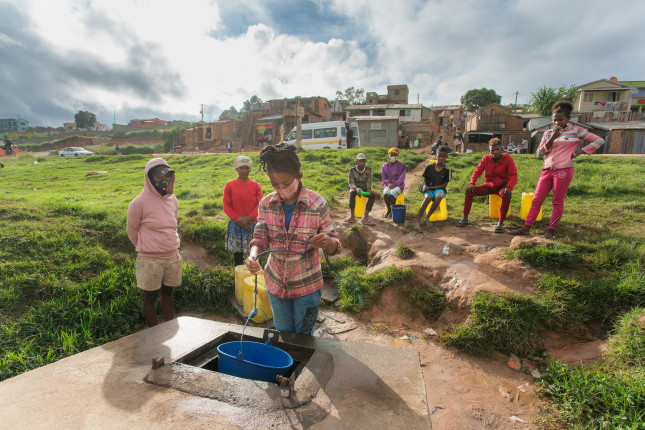Factor influencing the adoption of community-led total sanitation in Laisamis Sub-County (Kenya)

Community-Led Total Sanitation (CLTS) is a behaviour change approach that focuses on empowering communities to take collective action to eliminate open defecation and improve sanitation practices. Although CLTS has been implemented in Kenya for more than a decade now, open defecation is still rampant particularly in the pastoral areas. This study examined the influence of social, cultural, and household ability factors on the implementation of community-led total sanitation in Laisamis Sub-County, Marsabit County, Kenya. A descriptive study design with mixed methods approach was used. A sample of 393 randomly selected household heads from five Wards in the Sub-County was used. The study found out that the role of natural leaders in mobilizing communities to construct toilets after CLTS was appreciated due to its ability to promote toilet adoption (Unadjusted OR 1.576 95% CI: 1.245-3.476, p=0.042). Findings showed that CLTS had promoted knowledge on dangers of open defecation yet, open defecation practice was still rampant. Open defecation practices were associated with the participants’ livelihoods of herding in grazelands where there were no toilets (Unadjusted OR 4.094 95% CI: 0.145-2.856, p=0.000). Taboos and beliefs that surrounded toilet sharing between children and adults affected toilet utilization (OR 0.67 95% CI: 0.345-4.567, P=0.002). Although CLTS had promoted construction of toilets, the facilities were described as poor and non-durable as they were constructed using locally available weak materials like sacks and tree branches or leaves. Households ability factors such as income level influenced the type of toilets constructed at the households. Households with lower income had 63.4% lower chances of constructing desirable toilets. The study concluded that although CLTS was an effective strategy in triggering behaviour change among communities, the manner of its execution needed to be context-specific to accommodate the needs of the communities targeted. Involvement of both women and men in CLTS triggering and behaviour change communication campaigns to reinforce the importance of ending open defecation whether in bushes or at home could be necessary. The Ministry of Health and Non-Governmental Organizations should find out creative triggering and human rights-cantered strategies which could make pastoral communities better understand the essence of safe sanitation.

